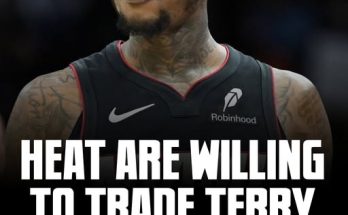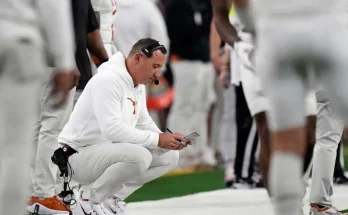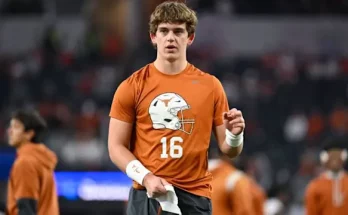Breaking News: the Los Angeles Lakers have officially changed hands. Four decades after Jerry Buss purchased the franchise, the storied NBA organization is shifting control into new hands as the Buss family relinquishes majority ownership. In a landmark transaction valued at around $10 billion, the franchise’s majority stake has been sold to billionaire investor Mark Walter, the principal owner of the Los Angeles Dodgers and CEO of Guggenheim Partners . This sale, announced on June 18, 2025, marks the most expensive transaction in U.S. professional sports history , surpassing all previous valuations and reshaping the landscape of elite sports ownership.
The Lakers will remain intricately connected to the Buss family, though in a dramatically reduced role. Jeanie Buss, who has led the franchise since inheriting authority in 2013 following Jerry Buss’s death, will continue as governor and president, maintaining operational control for the foreseeable future . The family has retained approximately 15 percent ownership temporarily to comply with NBA rules requiring a controlling owner to hold a share. This structure allows the Buss name and legacy to remain intimately tied to the team, even as control shifts .
The $10 billion valuation places the Lakers at the pinnacle of franchise worth worldwide. Forbes in 2024 had already pegged the team at about $7.1 billion, ranking it third in league valuation , but this deal catapults it to the zenith of sports property assets. Prior to the Lakers, the record sale had been held by another NBA team, the Boston Celtics, acquired for roughly $6.1 billion earlier in 2025 . The sheer magnitude of this transaction speaks volumes about the relentless inflation in media rights and the premium of live sports programming in today’s digital ecosystem .
Mark Walter, already part-owner of the Lakers through a minority stake he secured in 2021 when he and Todd Boehly bought shares from Philip Anschutz, now rises to the franchise’s top. His stewardship of the Dodgers—marked by multiple World Series titles and consistent postseason appearances—serves as a template of sustained sporting success, which Magic Johnson publicly endorses . Magic, himself a minority owner and close business partner of Walter, praised Jeanie Buss for orchestrating “an incredible deal” and expressed confidence that Walter would excel in protecting and growing the Lakers brand .
To the uninitiated, this dramatic shift might seem like a seismic cultural rupture, but it is also a carefully managed evolution. Walter’s beefed-up minority consortium already includes co-owners Todd Boehly, Patrick Soon‑Shiong, and Edward Roski Jr., meaning there’s already a blended leadership. The NBA approved Walter and Boehly’s earlier minority acquisition from Anschutz in July 2021, which valued the team at $5 billion—an early signal that this transition was already in incubation That earlier infusion of capital and governance set the stage for the current majority stake transfer.
During the last Buss family ownership stretch, the Lakers claimed multiple NBA titles—11 championships since 1979, to be precise (. The franchise has been synonymous with the “Showtime” flair of the 1980s under Jerry Buss’s leadership, and with later dynastic periods powered by Kobe Bryant, Shaquille O’Neal, and LeBron James. While the team has not reached the Finals since 2010 (their last 2020 title notwithstanding), their brand remained globally dominant. A mid‑season 2025 trade for Luka Dončić invigorated fan interest, cementing his jersey as the fastest-selling in NBA history and driving merchandise revenue past $1.2 billion .
This sale also raises pivotal questions about the future trajectory of the organization. Where this franchise defeats others is not only on court performance, but in its entrenched global brand and marketing power. Walter’s financial acumen and model of diversified sports management—seen across the Dodgers, Sparks, a WTA tennis franchise, PWHL hockey, and even Formula 1—suggest he views the Lakers as not only an athletic asset, but a multi‑media, lifestyle powerhouse
Other NBA franchises such as MSG Sports (Knicks/Rangers) are already seeing boosts in market valuation thanks to the Lakers sale, prompting analysts to suggest further consolidation or divestiture could follow . These ripples suggest the Lakers sale isn’t just a one‑off record; it’s a flashpoint for a broader shift in how premium sports franchises are packaged, owned, and monetized.
Players too have taken note. LeBron James—now entering the twilight of his legendary career—may now view ownership more tangibly than ever. Some speculation suggests he could, someday, buy into or take a prominent role in the franchise, following in the footsteps of athletes like Michael Jordan and Tom Brady (. Luka Dončić’s arrival, meanwhile, adds a generational complement to LeBron, potentially creating a long-term core focused on global competitiveness. Dončić himself has expressed surprise at the trade but his incredible appeal has already translated into unprecedented merchandise demand and heightened international brand reach .
Still, the organizational structure will remain familial at heart. Jeanie Buss’s continued operational authority ensures continuity, while Mark Walter’s financial stewardship supplements her vision. NBA rules mandate a controlling owner hold at least a 15 percent stake , but that share is transitional. Over time, the Buss family may reduce their stake completely, although at present they remain both emotionally and economically invested in the team’s future.
Fans and experts alike are divided. Some view it as the bittersweet end of an era—no longer will “Buss family nights” and generations of Lakers lore reflect familial stewardship. Others argue that exceeding $10 billion would demand resources and infrastructure beyond the capability or desire of any single family. That transition—from long-term private ownership to elite financial titans—is in many ways inevitable
Looking ahead, the Lakers under Walter are poised to innovate on and off the court. New media deals, expanded global reach, arena upgrades, and community investments are all on the horizon. In April 2023, the organization had already emphasized mental‑health resources and player welfare—next-level management by Jeanie Buss that may now get even more strategic support . With Walter’s track record, similar transformation could spill into arenas beyond basketball—sports media, digital fan engagement, women’s sports initiatives, and entertainment partnerships.
As of this morning, the deal still awaits final NBA Board of Governors approval—a formality expected in the coming weeks. Once signed, the Lakers’ franchise ledger will reflect a new chapter where global brand, technological infrastructure, and diversified revenue streams align under a strong, well-capitalized owner-operator structure. Even as the Buss name recedes, her family’s tradition of excellence remains integral to the Lakers identity—and now that legacy steps into an even grander, more corporate future.
History shows Lakers fans may grieve the end of an ownership epoch. Yet with Luka and LeBron carrying star power, Jeanie at the helm managing a familiar brand, and Walter’s resources fueling ambition, the Lakers look set to redefine their position—in business, culture, and on the basketball court. What remains unchanged is the purple-and-gold aura: elite, glamorous, and always championship hungry. The torch may have changed hands—but as Jeanie Buss herself stressed, the mission remains the same: to keep the Lakers as the gold standard in basketball and sports entertainment.


